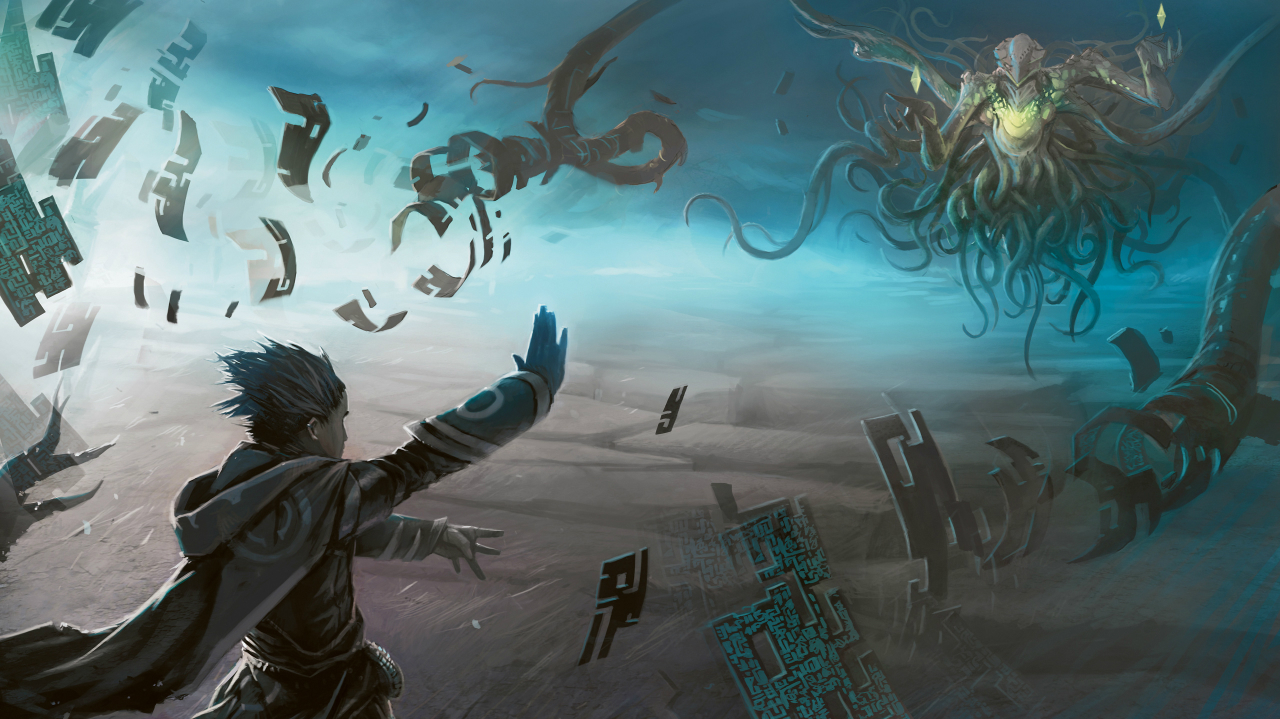Or, an adventure in ignorance
I’m telling you right now, if you clicked on this article for an expert opinion on all things Magic: The Gathering, you’re in the wrong place. I know fuck-all about Magic! My only experience with Puzzle Quest is the five minutes I played ten minutes ago to have some semblance of authority on the topic.
Our wonderful Steven Hansen knows that I love Dungeons & Dragons and have recently made it my beat. He figured “Magic? Dungeons & Dragons? Same thing! Pen and pape her? I hardly know ‘er!” and sent me on my way.
So when I showed up at my appointment to see the game at PAX, I was a little nervous. The nice PR man had already helped me out by generously pushing back my appointment since I had slept maybe two hours during the previous night, and here I was, about to be that guy who sheepishly smiles blankly as the enthusiastic developer pours his heart out. When I timidly arrived and he jovially asked how much I knew about Magic, I chose the honest route and said zero. When he hopefully asked if I knew anything about Puzzle Quest, and I shook my head, his shoulders fell almost imperceptibly. His sad eyes betrayed his desire to remain cheerful.
“Well, this is going to be hard.”

I’ve always been curious about Magic, so I clenched my toes and resolved to understand everything the developer was going to tell me. Like other Puzzle Quest games, this is a match-3 game where you have to rearrange chromatic gems. You play as a Planeswalker of your choice, which the internet tells me is “among the most powerful beings in the Mulitiverse” and is also a cipher for the player. Each Planeswalker specializes in a certain type of mana, which correlates with a certain colored gem. By carefully choosing gems that are better for your P’Walker, you can cast spells, use items, and attack your opponents.
As I aimlessly matched Swamp mana gems, developer man told me that while decks begin pre-assembled and tailored to each Planeswalker you can choose from, you can also earn new cards through the game or through buying booster packs. If you decide to buy a booster pack, you’ll be shown more cards than you’ll actually get and can choose from that pool. D3 Go! told me that they found inspiration by way of popular dating (fucking) app Tinder, in that if you like a card, you can swipe right to have sex with it acquire it, and if you don’t you can swipe left to dismiss it. It’s almost the same amount of fun, except here you’re judging and subsequently throwing a card (instead of a person) in the bin.
While there will be a set number of Planeswalkers at launch, more cards and characters will be available as time goes on. D3 Go! wants special events to tie into the physical card-based game when they can, and might even make certain cards easier to attain at these times. They haven’t nailed down the pricing and timing of these events yet, but plan to make sure this month’s variant of Puzzle Quest has a long span of life.
Though my awkward time with Magic: The Gathering – Puzzle Quest wasn’t enough to teach me all of the intricacies of the upcoming mobile game, I left curious. I might try it out this fall when it releases for free on iOS and Android devices, if only as an opportunity to symbolically apologize to D3 (kudos for being patient and fun!) for making their job harder for fifteen skin-crawling minutes.
Let’s see who’ll be the first person to accuse me of not knowing anything about Magic in the comments. You have my permission to laugh at them. Or, you can be nice and point to the first paragraph. Your call.








